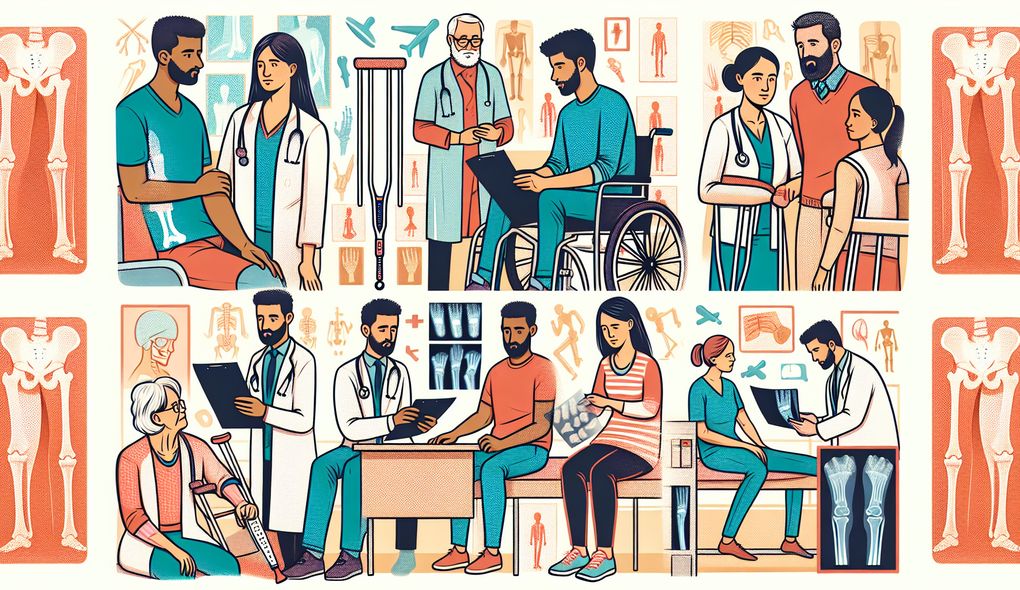Describe a situation where you had to advocate for a patient's needs.
JUNIOR LEVEL

Sample answer to the question:
I once had a patient who was experiencing severe knee pain. They had been to multiple doctors and specialists, but their condition was not improving. As their primary care physician, I took it upon myself to advocate for their needs. I thoroughly reviewed their medical history and consulted with other healthcare professionals to find the best course of action. I reached out to an orthopedic specialist and arranged for the patient to see them for further evaluation. I coordinated the appointments and ensured all relevant medical records were shared. Through my advocacy, the patient was able to receive a proper diagnosis and start a targeted treatment plan that significantly reduced their pain and improved their quality of life.
Here is a more solid answer:
In my previous role as a primary care physician, I encountered a complex case where a patient was experiencing chronic back pain. Despite multiple failed treatments, the patient was determined to find relief. I took the initiative to research and consult with specialists in orthopedics and pain management to develop a comprehensive treatment plan for the patient. I scheduled appointments and coordinated care between different healthcare professionals involved in the patient's case. Through effective communication and collaboration, we were able to identify the underlying cause of the pain and implement a targeted approach, including physical therapy and medication adjustments. The patient's condition improved significantly, and they expressed their gratitude for my advocacy throughout their journey.
Why is this a more solid answer?
The solid answer expands on the basic answer by providing specific details and examples to demonstrate the candidate's skills in communication, collaboration, and problem-solving. The candidate describes their research efforts, coordination of care, and the positive outcome achieved through their advocacy. However, the answer could be further improved by including more information about the candidate's analytical and problem-solving skills in assessing the patient's condition and developing a treatment plan.
An example of a exceptional answer:
During my residency in orthopedic surgery, I encountered a young patient with a complex fracture in their leg. The patient had multiple health conditions that complicated their case, and their recovery was at risk. Recognizing the importance of advocating for their needs, I conducted a thorough assessment of their medical history, consulted with specialists in various fields, and coordinated a multidisciplinary team to develop a tailored treatment plan. I actively engaged with the patient and their family, ensuring they fully understood the treatment options and the potential risks involved. Through my analytical and problem-solving skills, I identified a unique surgical approach that minimized the risk of complications and optimized the chances of a successful outcome. The patient's recovery was remarkable, and they expressed their gratitude for my unwavering support and dedication to their wellbeing.
Why is this an exceptional answer?
The exceptional answer goes above and beyond by providing a detailed and compelling example of the candidate's advocacy for a patient's needs. The candidate showcases their exceptional communication, collaboration, analytical, and problem-solving skills by describing their comprehensive approach to the patient's complex case. The answer highlights the candidate's ability to navigate challenging situations and make critical decisions that lead to positive outcomes. It also emphasizes the candidate's dedication to patient education and engagement. Overall, this answer demonstrates the candidate's suitability for the role of an Orthopedic Specialist.
How to prepare for this question:
- Familiarize yourself with different types of patient advocacy scenarios, such as those involving diagnosis, treatment planning, or navigating healthcare systems.
- Reflect on your past experiences where you had to advocate for a patient's needs and highlight the outcomes achieved through your efforts.
- Brush up on your knowledge of musculoskeletal anatomy and physiology, as well as the latest advancements in orthopedic medicine.
- Practice discussing your communication, collaboration, analytical, and problem-solving skills, providing specific examples from your previous work or educational experiences.
What are interviewers evaluating with this question?
- Excellent communication and interpersonal skills
- Collaboration with other healthcare professionals
- Analytical and problem-solving skills

